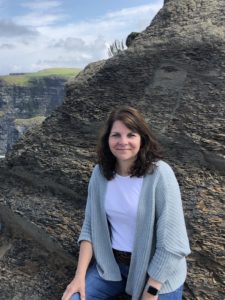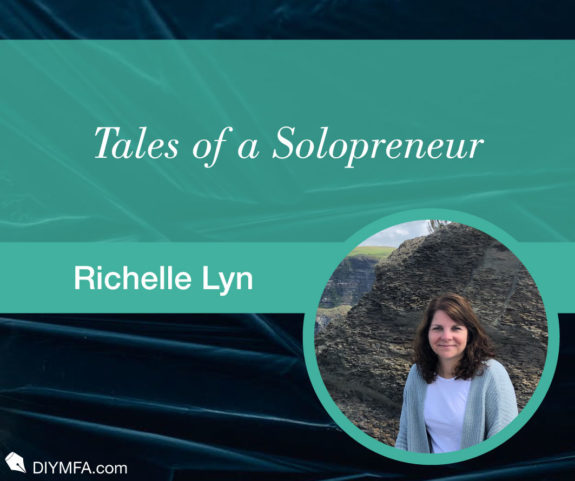As I write this post in early 2022, I’ve closed out my 2021 Virtual Writers Sabbatical (“VWS”) and started fresh. I mentioned in my Discovering the Art of Book Coaching post in December that my 2022 VWS would include focusing on completing a book coach certification program and starting a book coaching business. I’m at the beginning of my solopreneur journey, so I’m taking you along for the ride in real-time.
This first installment of my Tales of a Solopreneur series focuses on brainstorming your business before you start building it. And if you are new to the VWS, check out Create Your Own Virtual Writers Sabbatical, which provides a roadmap on how to kick off your own virtual writing craft adventure.
Where to Start Your Solopreneur Journey?
My typical reflex is to rush to implementation once an idea fully materializes in my mind since it’s usually been popping up without warning or taking up mental space for a while, so I started a list of the key areas I thought I’d need to focus on to get my business up and running: development, design, brand, marketing, technology, systems, and launch.
But before overwhelm set in and I spent significant time building my business, I wanted to ask some critical questions I hoped would help me stay engaged long-term, avoid racking up business-related expenses on the wrong things if my idea morphed in the early stages, and make sure my idea’s foundation was strong yet had some room to shift as it settled, so I could pivot productively over time.
So the first step to building my business included all thinking—and no doing. I focused on me and my ideal customer/coaching client (“IC”) using a 5 W’s & H Framework.
WHO Do I Want To Help; And Equally Important, WHO Do I NOT Want To Help?
I started with identifying who I wanted to help and why because it’s just as important to me to enjoy the camaraderie of who I’m surrounding myself with day-in and day-out as the work that I’m doing. The future of online businesses is bright; but just because there are more people online these days looking for a fix or resolution to a problem or question they have, does not mean I should focus on the masses and helping everyone. I believe this influx can work to my disadvantage if I’m not thoughtful and strategic about how I position my business and my brand.
My business will involve 1:1 and group coaching, so there will be limits on how I can scale my business. I was drawn to book coaching for the human connection as much as the stories. I believe I’m likely to find more success focused on a smaller audience with a specific niche.
I want my target audience to know in their bones that I’m speaking to them when they see my brand. The clearer the connection I can create between me and who I want to serve, the less time I will waste fielding requests and possibly working with clients who don’t value me or what I have to offer them. Instead, I can spend more time creating and communing with those who I can and want to help the most.
Here are the initial WHO questions I used to develop my ideal client (IC) image:
- Dreams vs. Destinations: What does my IC dream about, and where are they on the path to that dream? What steps have they taken towards their dream? Are they more attracted to the idea of the dream itself, experiencing the journey, or reaching their dream destination? What are their roadblocks and/or pain points along the way?
- Real Life: What does their day-to-day life look like? How do they spend their largest chunks of time? What are their most important responsibilities and the biggest pain points that keep them up at night?
- Free-Time & Fun: What is their favorite thing to do or way to spend their time? What’s their relationship with free time, and how do they like to spend it? Do they take time out to care for themselves? Do they have enough fun, or is fun one more thing on their to-do list they never get to?
- What’s the Attraction & the Turn-Off?: What is it about the IC that makes me care about helping them reach their dream destination? What qualities would turn me off and make me resist, resent, and/or regret working with them?
WHAT Help Can I Provide My IC?
One thing I’ve learned as a writer is there are no new ideas. The same could be said of starting a solopreneur business. Most of us are not the first, nor the last, to enter our respective industry. But I believe there’s enough room for all of us if we focus on our own unique qualities: what we bring to the table and how we do things differently from others. This is often referred to as a unique selling proposition (USP) or creative expression. So I strive to focus on myself, do the best I can, and spend minimal time worrying about what everyone else is doing.
Here is how I identified my USP—the intersection between my IC’s pain points and where I could help them:
- IC Pain Points: I reviewed my IC’s day-to-day and dream destination pain points from above and ranked them in one column in descending order starting with what’s most important and/or urgent to them.
- My Strengths: I listed in another column the skills and knowledge I have to help them.
- Connections: I drew lines connecting the entries in the two columns where my strengths could provide value to their pain points. Then I noted on each line how I could help fix their problem. Can I eliminate it, shrink it, or prevent it from happening?
- Priorities: I circled in a different color the lines where I thought I could provide the most value, so I can focus on these items as I build out my USP and service offerings. I also starred the remaining pain points that would become hurdles to coaching success if not addressed in some manner.
WHY Would My IC Want My Help?
The coaching relationship is just that: a relationship, with a give and take and a dedication or commitment on both sides to actively participate. I want my IC to be in it to win it to set them up for a positive and productive experience, so I started with these questions:
- Fix or Fumble: Does my IC actually want help fixing their pain points and reaching their dream destination? Given the right resources, will they take action? Or do they like the idea of it and are hoping for a quick fix with minimal effort?
- Time and Effort: How much time and effort will be required on their part, and are they likely to make the commitment?
- Success Defined: How would they (and I) identify success for them and measure their progress? Is there more to gain besides just addressing their pain points or getting closer to their dream? Are there other benefits or positive impacts?
- Roadblocks: What could get in the way of their coaching success, and is there a way to stop it?
- Customization: Is the help needed a one-size (or a few sizes) fits all, or will the answer require customization for each IC? What’s the scalability of the services I can provide?
- Commitments: What can I/can I not promise them? What commitments do I expect from them?
WHERE & WHEN Will Help Be Available?
I knew I wanted my business to start and remain online long-term, so my WHERE and WHEN questions focused on:
- WHERE and WHEN my IC will be able to access information on me and my business and start an inquiry into the coaching process, and
- WHERE and WHEN I will provide coaching services to my clients.
HOW Will I Work?
I needed to make sure my initial business implementation would be aligned with my long-term goals to avoid setting up structures or client expectations that would be burdensome or difficult to change later. Some key questions I asked were:
- Mission & Values: It always seems to come back to my WHY. But in order to identify what success as a book coach looks like for me, I need to keep checking in with myself to determine if my WHY is still the same. And if it’s not, is the change significant enough to require me to pivot and how?
- Work Structure: Part-time or full-time or over-time? Flexible work-week or standard business hours? Office setting?
- Task Maximization: What tasks will be required and how will I split my time? My task buckets include: client project work, deep thinking strategy, business administration, client calls and communications, and networking with other colleagues in the industry. Although all tasks will be mine to start, which tasks should I pass on to someone else later, when, and how?
- Solo Forever?: Do I want to remain a one-person shop and add a virtual assistant? If I want to add employees, why and how would they fit into the big picture?
What’s Up Next on My Solopreneur Journey?
Although the specific questions will change along the way, the 5 W’s & H Framework is an iterative process that I will keep returning to throughout my business development. But for now, I have my IC avatar in sight, and I have a strong enough understanding of what I want my business to look and feel like to move forward.
So next up for me is to do a deeper dive into viability testing, which I spent some time on before starting the book coaching certification program. This will include researching the industry and what other comparative businesses are doing and what their business models look like, as well as determining what the business’s long-term earnings potential looks like. I will also continue my book coaching certification studies. The viability testing and expertise building are additional ways to refine my USP, so developing my marketing brand will be easier to figure out when I get to that step.
Then, I can focus on the other areas in manageable chunks: setting up the business entity, building my website and social media marketing, designing coaching packages, selecting the technology and systems to use with my clients and behind the scenes, the business roll-out, and anything new that pops up along the way.
I’m excited about my solopreneur journey and hope sharing my 5 W’s & H Framework to brainstorming a business has inspired you to dig a little deeper into that idea you can’t let go of.
Will 2022 be the year you start your solopreneur startup?
Tell us in the comments: Are you considering starting your own solopreneur business? How are you applying the 5 W’s & H Framework?

Richelle Lyn is a compensation & benefits attorney and HR executive, who now spends her days focused on the writing life. Her favorite fiction reads involve leading ladies who push boundaries and conquer their fears while preferably digging for secrets, learning magic, and/or saving the World. She’s also a fan of non-fiction reads focused on personal growth and transformation. She loves her tea hot and her coffee iced. She calls South Florida home, but her favorite place to be is on a trip. You can check her out on Twitter and Instagram.







